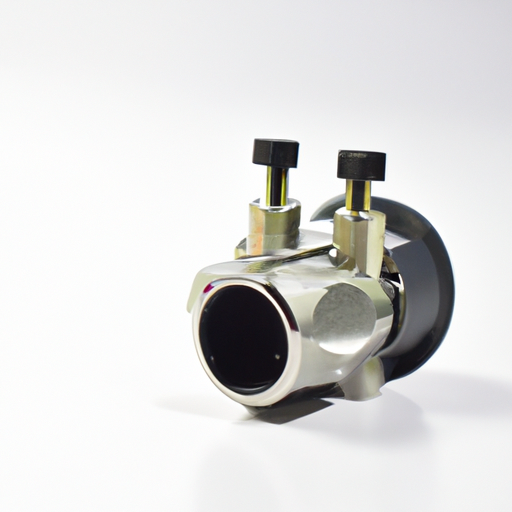

Product standards for adjustable sensors are essential to ensure that they meet the necessary requirements for quality, safety, and performance. These standards help manufacturers produce reliable and consistent products that meet the needs of consumers and comply with regulations. In this article, we will discuss the product standards for adjustable sensors and why they are important.

One of the most important product standards for adjustable sensors is accuracy. Sensors must be able to provide precise and consistent measurements to ensure that they can effectively monitor and control processes. The accuracy of a sensor is typically expressed as a percentage of the full-scale measurement range. For example, a sensor with an accuracy of ±1% can measure a parameter within 1% of the actual value.
Another important product standard for adjustable sensors is sensitivity. Sensitivity refers to the ability of a sensor to detect small changes in the parameter being measured. A sensor with high sensitivity can detect subtle variations in temperature, pressure, or other parameters, making it more suitable for applications that require precise measurements.
Reliability is also a key product standard for adjustable sensors. Sensors must be able to operate consistently and predictably over time, even in harsh environments or under challenging conditions. Reliability is often measured in terms of mean time between failures (MTBF), which indicates the average time a sensor can operate before experiencing a failure.
In addition to accuracy, sensitivity, and reliability, adjustable sensors must also meet standards for durability and robustness. Sensors may be exposed to extreme temperatures, humidity, vibration, or other environmental factors that can affect their performance. To ensure that sensors can withstand these conditions, they must be designed and manufactured using high-quality materials and components.
Product standards for adjustable sensors may also include requirements for calibration and testing. Sensors must be calibrated to ensure that they provide accurate measurements, and they must undergo rigorous testing to verify their performance and reliability. Calibration and testing procedures may vary depending on the type of sensor and its intended application.
Compliance with product standards is essential for manufacturers of adjustable sensors to ensure that their products meet the necessary requirements for quality, safety, and performance. Non-compliance with standards can result in product recalls, legal liabilities, and damage to a company's reputation. Therefore, manufacturers must adhere to industry-specific standards and regulations to ensure that their adjustable sensors meet the highest quality standards.
In conclusion, product standards for adjustable sensors are essential to ensure that these devices meet the necessary requirements for quality, safety, and performance. By adhering to standards for accuracy, sensitivity, reliability, durability, and testing, manufacturers can produce high-quality sensors that meet the needs of consumers and comply with regulations. Adhering to product standards is crucial for the success of manufacturers of adjustable sensors and for the safety and satisfaction of consumers.
Product standards for adjustable sensors are essential to ensure that they meet the necessary requirements for quality, safety, and performance. These standards help manufacturers produce reliable and consistent products that meet the needs of consumers and comply with regulations. In this article, we will discuss the product standards for adjustable sensors and why they are important.

One of the most important product standards for adjustable sensors is accuracy. Sensors must be able to provide precise and consistent measurements to ensure that they can effectively monitor and control processes. The accuracy of a sensor is typically expressed as a percentage of the full-scale measurement range. For example, a sensor with an accuracy of ±1% can measure a parameter within 1% of the actual value.
Another important product standard for adjustable sensors is sensitivity. Sensitivity refers to the ability of a sensor to detect small changes in the parameter being measured. A sensor with high sensitivity can detect subtle variations in temperature, pressure, or other parameters, making it more suitable for applications that require precise measurements.
Reliability is also a key product standard for adjustable sensors. Sensors must be able to operate consistently and predictably over time, even in harsh environments or under challenging conditions. Reliability is often measured in terms of mean time between failures (MTBF), which indicates the average time a sensor can operate before experiencing a failure.
In addition to accuracy, sensitivity, and reliability, adjustable sensors must also meet standards for durability and robustness. Sensors may be exposed to extreme temperatures, humidity, vibration, or other environmental factors that can affect their performance. To ensure that sensors can withstand these conditions, they must be designed and manufactured using high-quality materials and components.
Product standards for adjustable sensors may also include requirements for calibration and testing. Sensors must be calibrated to ensure that they provide accurate measurements, and they must undergo rigorous testing to verify their performance and reliability. Calibration and testing procedures may vary depending on the type of sensor and its intended application.
Compliance with product standards is essential for manufacturers of adjustable sensors to ensure that their products meet the necessary requirements for quality, safety, and performance. Non-compliance with standards can result in product recalls, legal liabilities, and damage to a company's reputation. Therefore, manufacturers must adhere to industry-specific standards and regulations to ensure that their adjustable sensors meet the highest quality standards.
In conclusion, product standards for adjustable sensors are essential to ensure that these devices meet the necessary requirements for quality, safety, and performance. By adhering to standards for accuracy, sensitivity, reliability, durability, and testing, manufacturers can produce high-quality sensors that meet the needs of consumers and comply with regulations. Adhering to product standards is crucial for the success of manufacturers of adjustable sensors and for the safety and satisfaction of consumers.